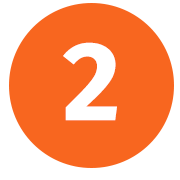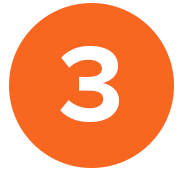What Is a Self-Directed IRA?
A self-directed IRA is a tax-advantaged retirement plan that lets you invest in a wider range of assets than standard retirement plans. Self-directing your account lets you take control of your financial decisions and invest in real assets that generate high gains, such as real estate, Bitcoin, or private equity.

How Does a Self-Directed IRA Differ from Regular IRAs?
Self-directed IRAs have the same tax structure and advantages as standard IRA accounts, but they are administered by a custodian as opposed to a depository. Since most traditional depositories only handle over-the-counter trading with stocks and bonds, a custodian enables you to invest in a larger pool of assets more hands-on, such as flipping houses or managing rental properties.
| Similarities | SDIRA Differences |
| Tax-Advantaged Account | Invest in a Wider Range of Assets |
| Available in Roth or Traditional Structure | Managed by a Custodian |
| Subject to Same Contribution Limits | Prohibited Transactions |
| Subject to Same Roth Income Limits | Options for Checkbook Control |
Benefits of a Self-Directed IRA
Self-directed IRAs are ideal for individuals saving for retirement and experienced investors who want to take advantage of the tax rules governing IRAs.

Whether you’re looking to invest in self-directed IRA real estate or open a gold IRA, SDIRAs allow you to tailor your investment strategy to best suit your strengths.
- Invest in Alternative Assets–Real estate, gold, Bitcoin, and more!
- Higher Growth Potential–Unleash dormant funds!
- Wider Range of Diversification–This isn’t just stocks!
- Tax-Deferred or Tax-Preferred Growth–You choose your tax structure!
- Full Investor Control–Custodians are passive entities!
- Cut Check with Full Checkbook Control–Simply open an LLC!
What Can I Invest In with a Self-Directed IRA?
Self-directed IRAs are the only investment accounts that allow you to own real property in a retirement plan and pay no tax on earnings (Roth SDIRA). Some of the wide range of assets you can own and transact in a self-directed IRA include:
- Real Estate (House Flipping, Rentals, Tax Liens, Wholesaling)
- Precious Metals (Gold, Silver, and More)
- Cryptocurrency (Bitcoin, Ethereum, and More)
- Private Equity (Venture Capital, Leveraged Buyouts, Growth Equity)
- Private Placements (Hedge Funds, REITs, Oil and Gas)
- Promissory Notes (Secure and Unsecured Loans) Traditional vs. Roth Self-Directed IRA
Selecting Your Tax Structure
Like standard IRAs and 401(k)s, self-directed IRA account holders have the option of structuring their account as a Traditional or Roth self-directed IRA.
Traditional SDIRAs are funded with pre-tax dollars, meaning all earnings grow tax-free until they are withdrawn. Roth SDIRAs are funded with after-tax dollars, meaning all earnings are tax-free.

| Traditional Self-Directed IRA | Roth Self-Directed IRA |
| Tax-Deferred Growth | Tax-Preferred Growth |
| Tax Deductible | Not Tax Deductible |
| Earnings and Contributions Are Taxed at Withdrawal | Tax-Free Earnings and Contributions at Withdrawal* |
| Not Subject to Income Limits | Subject to Income Limits** |
| Subject to RMDs | Not Subject to RMDs |
* All contributions in a Roth IRA are not taxed at withdrawal; however, earnings made before the 59½ are subject to early withdrawal penalties.
**For more information on Roth Income Limits, read our Guide to Roth IRA Requirements.
Understanding the Role of a Custodian
Self-directed IRA custodians are licensed trusts or financial institutions required to administer a self-directed IRA under IRC 26 U.S. Code § 408. The role of the custodian is merely passive and is tasked with:
- Directing transactions on behalf of the client’s requests.
- Managing all tax-reporting requirements, including Form 5498.
- Holding the client’s account funds in custody.
- Record all transactions for reporting purposes.
Common Self-Directed IRA Fees to Watch For
Depending on what type of custodian you select, your account will be subject to a few different types of fees you need to be aware of:
- Account Opening Fees
- Transaction Fees
- Purchase of Asset Fees
- Record Keeping Fees
Luckily, companies like Horizon Trust charge a one-time annual fee that makes account management simpler for its clients.
Funding Your Self-Directed IRA
Clients can fund their self-directed IRA using personal funds out-of-pocket or by rolling over an existing retirement account into their new retirement plan.
| Contribution Limits: Out-of-Pocket Funding | Rollovers | Transfers |
| $7,000 Annually (2024) + a $1,000 Catch-Up Rate for Individuals 50 or Older* | Unlimited Funds from Any Existing Retirement Plan TAX-FREE | Unlimited Funds from Any Existing IRA TAX-FREE |
* Full List of 2024 Contribution Limits
Direct Rollovers are executed by your custodian, while indirect rollovers are distributed in a lump sum, which requires 60 days to deposit in your SDIRA without facing a penalty.
Transfers are similar and usually managed between two different IRA accounts [Learn More: IRA Transfer vs. Rollover].
Upgrade Your Self-Directed IRA with Checkbook Control
For unlimited investment autonomy over your self-directed IRA, account holders can open up an LLC to gain a little thing called “checkbook control.” This process enables SDIRA holders with an existing LLC in their account to cut checks directly from the LLC to fund investments without waiting for their custodian to approve the transaction.
Be Aware of Prohibited Transactions
Due to the amazing tax benefits of a self-directed IRA, they do come with additional regulations, known as Prohibited Transactions, that will result in financial penalties.
Fortunately, these penalties are easy to avoid if you are aware of these three rules.
- Personal Benefit Rule: No transaction can benefit you personally outside of the account. Example: You cannot sell a property you own to your SDIRA.
- Disqualified Persons: No transaction you perform can benefit someone who is related to you through familial descent or ascent, spouses, entities which you own 50% or more, your plan custodian, or employer.
- Unauthorized Assets: Certain assets, such as life insurance and collectibles, are barred from purchase in an SDIRA.
Self-Direct Your IRA In 3 Easy Steps
Opening a self-directed IRA is easy; all it takes is a few easy steps and some due diligence.

Open an Account with a Trust Custodian

Fund Your Account

Start Making Transactions
Have any questions? Book a free consultation with one of our concierge members and find out more how you can open a self-directed IR.
Self-Directed IRA FAQs
Anyone is eligible to open a self-directed IRA who has an existing retirement plan or money saved aside to contribute. Some custodians may require a minimum balance to fund an account in custody. Otherwise, you will need to be aware of Roth income limits. Currently, for 2024, Roth income limits are capped at a MAGI of $240,000 for married couples and $161,000 for singles.
Account holders are responsible for little-to-no paperwork during tax season. Your custodian will handle most tax forms, including Form 5498 and 1099-R, during tax season, though you may be required to calculate the FMV of your account if you own assets that are not easily quantifiable and require third-party help. Learn how to Calculate the Fair Market Value of Your SDIRA.
No, you cannot invest in a business where you personally own 50% or more of the total shares.
Unfortunately, you cannot take loans from an SDIRA like you can a 401(k).
A 15% tax on the total value of your asset that violates the prohibited transaction will be placed on your account for the first year and this will graduate to a 100% tax if not rectified accordingly. Disqualified persons will pay the same tax that violates this penalty.
You can purchase foreign assets with an SDIRA, though this requires additional tax work and legal complications. Consult with a tax professional and lawyer before completing such a transaction.
Traditional SDIRAs will pay a tax on all withdrawals above the age of 59½ based on the tax bracket they are in. All withdrawals from a Roth IRA are not taxed if taken after the age of 59½.
Your custodian will provide all of the key documents required to execute SDIRA investments. Horizon Trust has a list of all forms required to manage and transact an SDIRA.
